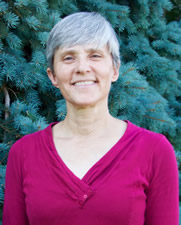
Dyslexia: Myth Busting and Soul Saving
New medical research about dyslexia and toxic stress should be a game changer in education. It is time to unite evidence-based medicine with best-practice education to help schools with the problems of achievement gaps, test scores, literacy, bullying, school dropout rates, suicides, mental health, classroom management, drug use, and criminality. Children who are English language learners, or who come from a lower socioeconomic status have even more to gain if schools embrace the new medical information. Many children with ADHD, executive functioning delay or behavior problems are misdiagnosed. With simple screening, adoption of an internationally accepted teaching approach, use of technology that already exists in most classrooms, and a new perspective of learning differences, these children thrive. The research is exciting as hard science puts a whole new spin on understanding why children struggle in school. The answers are not hard, nor expensive. Using precious school resources in an efficient manner that addresses the heart of the problem early translates into immeasurable cost savings for schools and society. Everybody wins.
Educational objectives:
At the end of the presentation, participants will be able to:
1) Describe the biologic basis of dyslexia, including genetic patterns and brain differences that explain dyslexic gifts and challenges;
2) Explain the emotional fragility of children with learning disabilities, accounting for behavior problems and inattention;
3) Outline solutions that parents and schools can adopt to allow dyslexic children to thrive
Biography
Dr. Gini Taylor is a private practice pediatrician from Denver, Colorado who is a passionate advocate for children with dyslexia. She began her professional career as a public high school science teacher, teaching advanced biology and health education for children with learning disabilities. For decades, she has continued her passion for teaching, presenting at multiple medical conferences, local hospital courses, and over the past several years, providing professional development on dyslexia for teachers in schools throughout the Denver Metro Area. She is a passionate advocate for dyslexics, not only as a former teacher and a current pediatrician, but also as a spouse and parent of dyslexics, in a bilingual family. She is currently partnering with parents, educators, speech therapists, reading specialists, physicians, and business to change the landscape for people with dyslexia